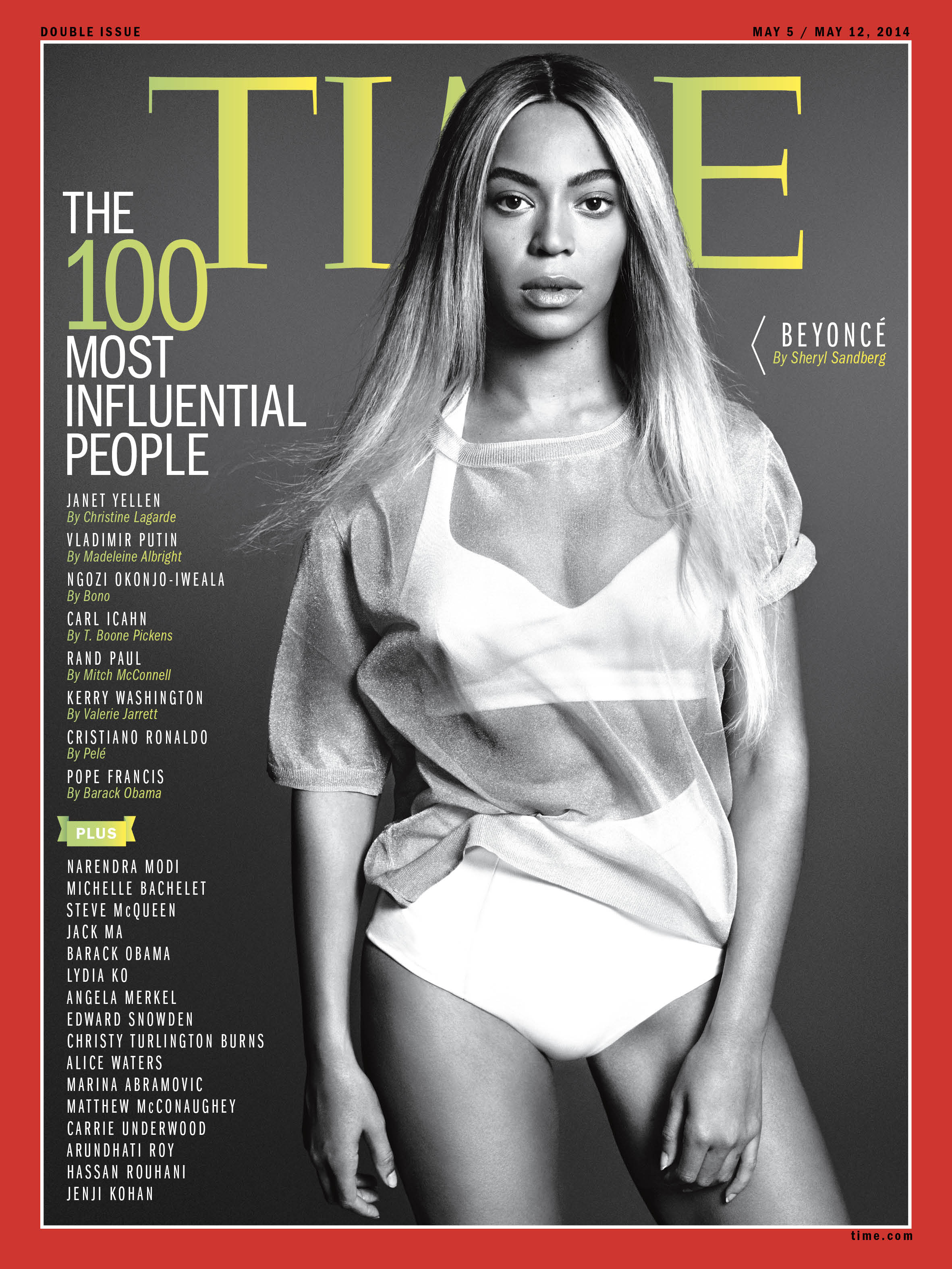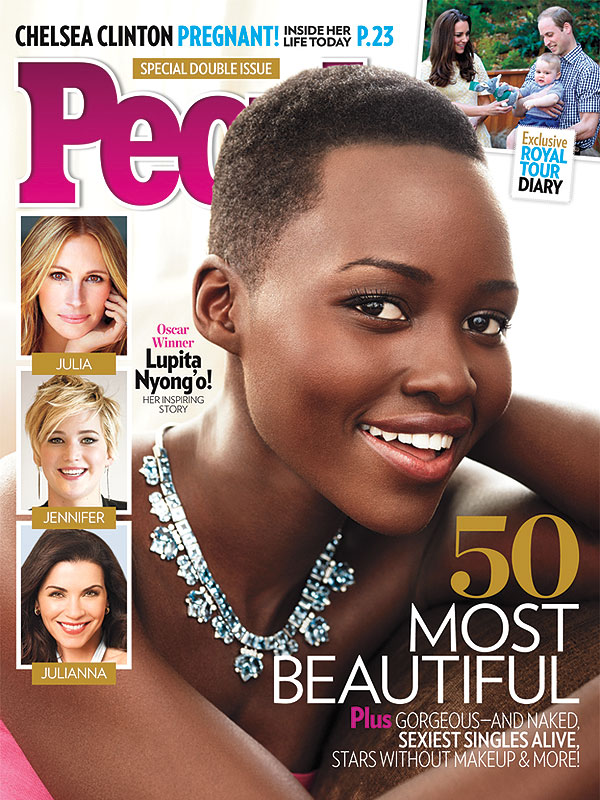On Thursday, the hashtag #WhatIsPretty trended on Twitter, inspiring men and women across the globe to share photos of what they consider beautiful. And on Thursday, the covers of two of the world’s largest magazines, TIME and People had a resounding answer: black women.
People named the Academy Award winning actress Lupita Nyong’o “The World’s Most Beautiful Person of 2014.” And the ever-flawless Beyoncé graces the cover of TIME magazine’s issue about the world’s most influential people. (Both magazines are published by Time Inc.)
Two black women from different ends of the spectrum of beauty—one with deep brown skin a short natural ‘do, the other with flowing blonde tresses and skin like creamy caramel—were chosen to represent the most beautiful and most influential women in the world. That’s something to celebrate.

It would be easy to dismiss the covers as revering of the fickle world of celebrity or to brush the two off as “it girls” who will dominate headlines for a year or so and fade to the background when another, more hot woman catches the interest of Hollywood.
It’s much harder to ignore the importance of this moment for little brown and black girls who will see these covers on supermarket shelves and think for a second, “hey, she looks just like me.”
There are countless documentaries, news stories, think pieces, tweets, and soapbox moments that show black women still have a ways to go until their “black” is seen as beautiful by all. The recent documentary film “Dark Girls” dug deeply into the everyday struggles with acceptance and beauty facing brown skin women in America. African American girls have with their personal and society’s perceptions of their beauty. Lupita has described herself as “night shade” and was even quoted in People saying she considered “light skin and long, flowing, straight hair” beautiful as a young girl. “Subconsciously you start to appreciate those things more than what you possess.”

And earlier in April, the U.S. Army issued new grooming rules that reminded African American women that the hairstyles we choose are still described using words like “unkempt” and “unruly.”(And when those words don’t’ fit, we’re often questioned about whether or not the hair on our heads grows from our scalps or was bought in a store.)
Unfortunately, these moments are still too common and are representative of the deep-rooted racism our society is still struggling to overcome. In no way are two magazine covers going to change that, but you know what? Beyoncé championed her self-titled album as a message on finding the beauty in imperfection and that’s what we should do here. Recognize the beauty of all women despite the imperfect standards placed upon them.
For this not-so-little brown girl, who once questioned why her naturally curly coils didn’t fall straight; who once asked her mom why there weren’t a lot of little brown girls in TV commercials, knowing a generation of girls will grow up seeing women breaking the mold of what is traditionally seen as beautiful thrust in the face of society makes me feel good. And it should make you feel good, too.
More Must-Reads From TIME
- The 100 Most Influential People of 2024
- Coco Gauff Is Playing for Herself Now
- Scenes From Pro-Palestinian Encampments Across U.S. Universities
- 6 Compliments That Land Every Time
- If You're Dating Right Now , You're Brave: Column
- The AI That Could Heal a Divided Internet
- Fallout Is a Brilliant Model for the Future of Video Game Adaptations
- Want Weekly Recs on What to Watch, Read, and More? Sign Up for Worth Your Time
Contact us at letters@time.com